
In his classic work, Loser and Still Champion, Budd Schulberg opens the chapter concerning the first Ali–Frazier bout at Madison Square Garden with quotes from both fighters, from match referee Arthur Mercante, and from the then MP for Mid Ulster, Bernadette Devlin.
It says much for the level of international recognition the 24-year-old civil rights activist enjoyed in 1971 that among a crowd including Robert Redford, Dustin Hoffman, Barbara Streisand, Count Basie, Duke Ellington, Miles Davis and Frank Sinatra (moonlighting as a photographer), Schulberg felt the sight of Devlin in a ringside seat chanting, ‘Ali! … Ali! … Ali!’, was especially noteworthy.
As Devlin sat in the Garden that night, millions of Americans were watching her being interviewed on a previously recorded episode of The Dick Cavett Show on ABC.
That high-profile television appearance was the culmination of a month-long tour of the country in which she spoke at thirty-eight universities, shattered lazy American preconceptions about ‘the auld sod’, and caused newspapers to dub her ‘the Celtic Rosa Luxembourg’ and ‘the mini-skirted Castro’.
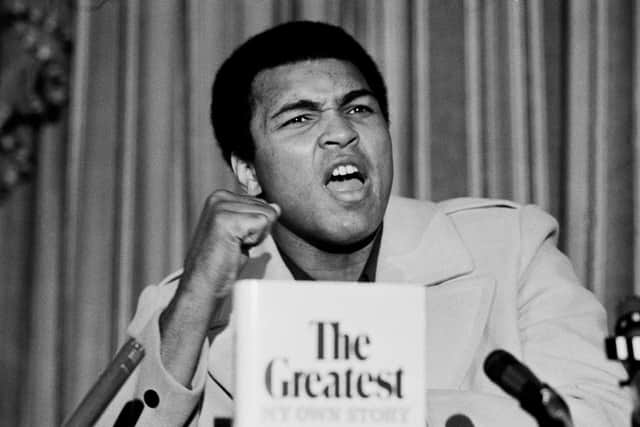
Befitting a woman who once received the key to New York City from Mayor John Lindsay then arranged for Eamonn McCann to hand it over to the Black Panthers, she denounced racism among Irish Americans, slammed the Vietnam War, protested President Richard Nixon, railed against capitalism and extolled socialism.
In California, she visited Angela Davis, the Communist Party member, philosophy professor, and radical icon, then in prison awaiting trial for supplying guns used to shoot at police.
Unfortunately, not everybody regarded her presence at the sporting event of the decade, nay century, as appropriate behaviour for a serious political campaigner.
"I remember being castigated by the revolutionaries for going to the fight in New York," said Bernadette McAliskey (née Devlin). “They felt my presence at the event gave it a credibility it did not deserve. They considered that I should have been on more serious business, not participating in these lower class-type things.”
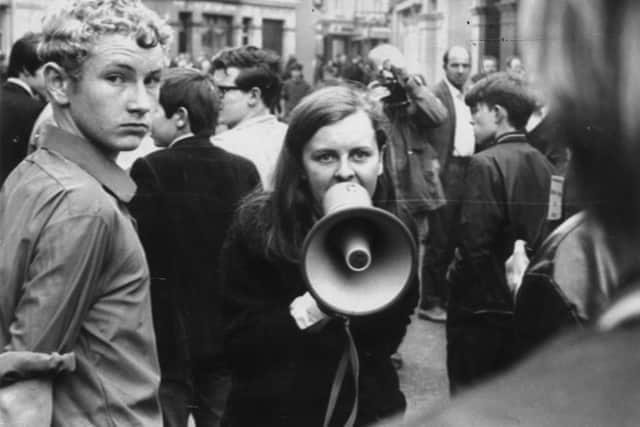
She added: “I was in the city on political business but Jimmy Breslin, the newspaper columnist who I happened to know, he had got two tickets for myself and the woman I was travelling with.
"We weren't going to pass them up, two tickets, good seats in the house to watch the Ali fight. Of course, we got hammered by the political activists for choosing to be there as opposed to being at some serious political work.”
Fourteen months after that night in New York, somebody in the Ali camp decided she was exactly the type of person the most outspoken athlete on earth might like to meet in Dublin.
The parallels between their lives are quite striking. Ali stood up to the US government on the issue of the draft, McAliskey stood up to the British government in the battle for equality for all in Ulster.
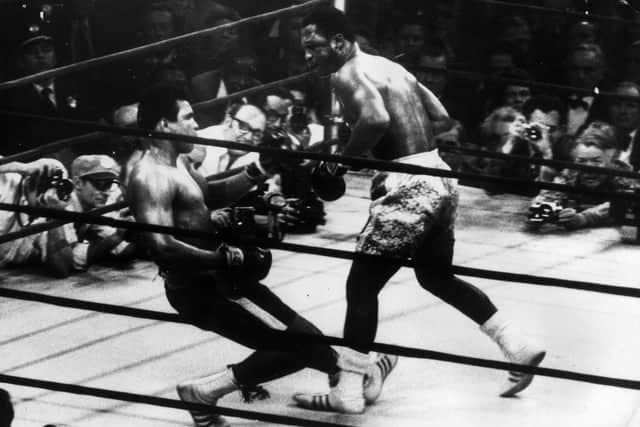

He was the youngest heavyweight champ, she was the youngest woman MP.
He styled himself as the poor black boy from Louisville. In her maiden speech to the House of Commons on the day of her twenty-second birthday, she declared her presence to be ‘the arrival of a peasant in the halls of the great.’
When invited to visit Ali’s camp on the day of the fight, she didn’t think twice.
"My main recollection is of being totally overawed at being in his company,” said McAliskey. “He was just a lovely man, really sharp, really bright and witty. A very equitable sort of man.”
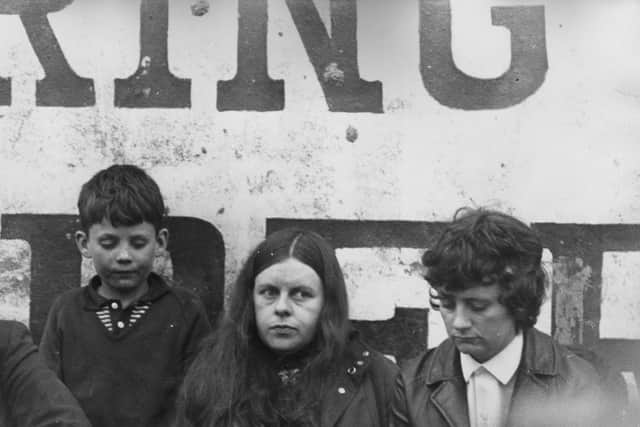
McAliskey continued: "You know there was none of this ‘I’m the champ’ about him on a face-to-face level. It’s kind of hard to explain. He had a lot of charisma. Here we were, we were all just down from the North and we were fairly ordinary people, and whatever bit of name recognition I had, it would have meant nothing to him. As far as he was concerned, we were all just ordinary punters, yet we were treated just magnificently.
“People say to me, you know, you must remember things like hitting Reggie Maudling (in the House of Commons after Bloody Sunday), and I have to scratch my head, but Ali I remember vividly.
"It was, at that time, the whole excitement, the aura of it, and people at home not believing you had tickets for it, never mind that you had sat down and eaten dinner with Ali in Dublin. I used to find that hilarious.
"None of the other famous people I met impressed my constituents at all, but they were all nearly shaking my hand after that – not because I had gone through hell for them – but because mine was the hand that had shaken the hand of Muhammad Ali. I just remember it was a wonderful cameo of excitement that had nothing to do with events up here.”
Her travelling companions that Wednesday morning were Michael McAliskey, the man she would later marry, and his friend Frank Gervin, both of whom were deeply involved in amateur boxing with the Coalisland and Clonoe clubs in Tyrone.
“I’ve no recollection of any in-depth conversation about the North. He knew who I was but that wouldn’t have been too hard at that time. I suppose that would have been pointed out to him. But he was equally friendly and interested in the people who were with me, who were running small, rural boxing clubs in the North.
"He was just a genuinely interesting person, not one of the people who behaved like a celebrity. There was no showmanship about him in private, just a lovely man, very intelligent actually and a good conversationalist. He was such good company.”
Bernadette grew up the second eldest in a family of six in Cookstown, County Tyrone. Her father died when she was nine years old. And given that her only brother was the youngest child, she still struggles to comprehend how the house came to be dominated by two sports and two particular names: Manchester United and Muhammad Ali.
When she sat down for lunch with Ali that day in Dublin, she found herself breaking bread with a man she had idolised since childhood. Even for somebody who had attained such a degree of fame that it was not uncommon to see foreign media refer to her as an ‘Irish Joan of Arc’, gaining an audience with Ali was intimidating.
"I was surely nervous on the way there. I don’t have many heroes, I don’t go in for heroes, but he was a hero. I was totally overawed. I was nervous because I was out of my area of expertise and out of my depth.
"But then to find that sitting down for dinner with him was like sitting down with your mates, to be welcomed into the circle the way we were, that nervousness dissipated quickly. I do remember that a part of me was really saying: ‘Oh God!’ beforehand. I think part of me was concerned about what it would be like if the positions were reversed.
"Here I was going down to meet a hero of mine, but he was probably saying: ‘Why do I have to meet these people?’ I mean, I wasn’t in line with the Taoiseach or even the head of Macra Na Feirme at the stage. I was more like the local troublemaker not yet disposed of.
"I’d have been in his corner all my life. He was very important to everyone in that sense, not just important to young black people. He took principled and difficult stands.”
Ali was equally taken with Devlin. In conversation with his friend Paddy Monaghan, he described her as ‘one of the world’s great ladies’.
Hearing the compliment relayed after nearly thirty years, McAliskey laughed at the language used by Ali.
"One of the world’s ladies? Lady had a different connotation in his circle than it did in ours. I think he used it in that old-fashioned way, whereas we would use woman.
"The way the Protestant community would use lady in that sense, they would consider it rude to speak of a woman as a woman. They would say ‘A lady called’. And we would say: ‘Had she a Lord with her?’ I think it must be something to do with the Baptists.”
-1736730578-q80.webp)
-1743063195-q80.webp)
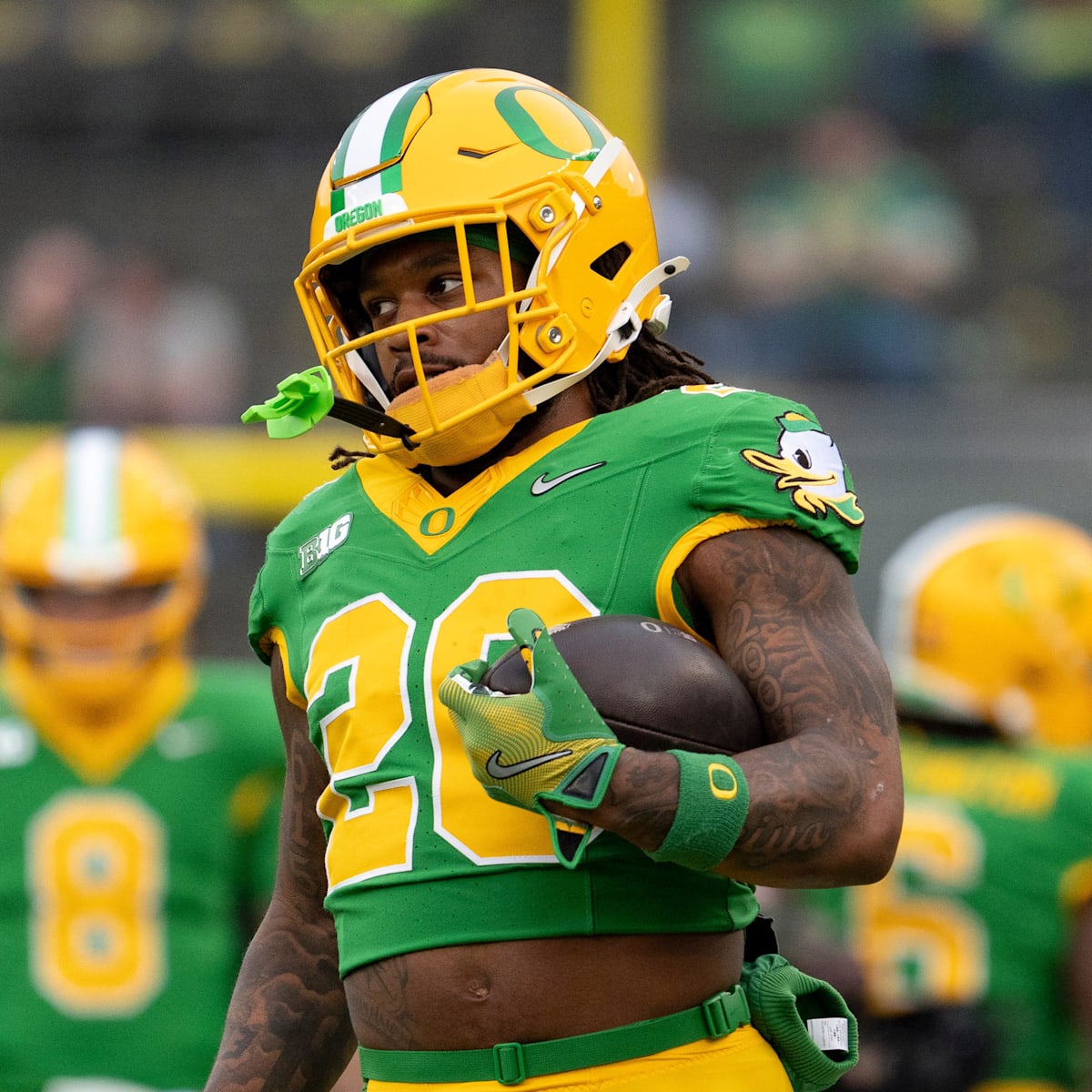
-1743133456-q80.webp)